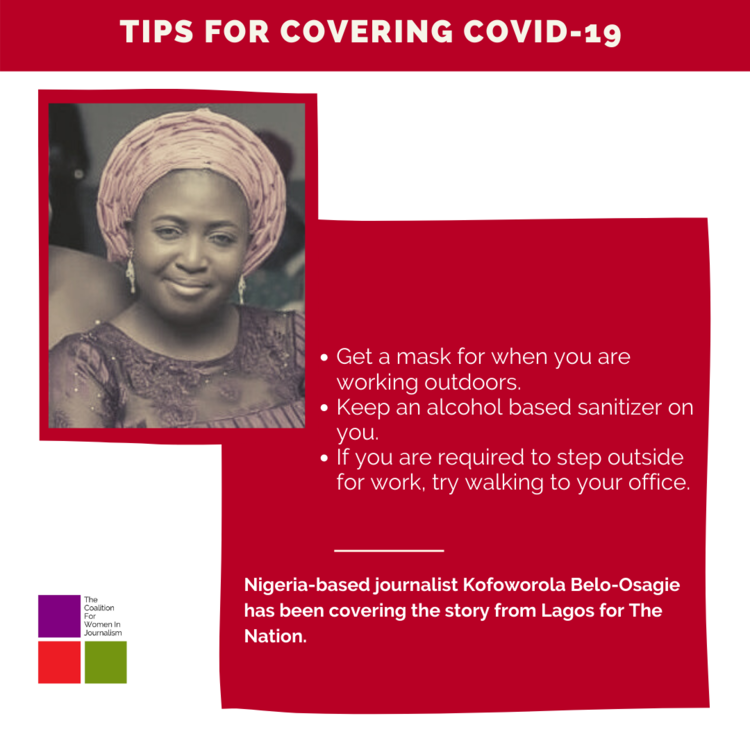COVID-19 Nigiera: Kofoworola Belo-osagie Talks About Her Experience Covering Covid-19
Kofoworola Belo-Osagie is based in Lagos, Nigeria, and works as the chief correspondent and head of the education desk at an English daily called The Nation. She covers the impact of the coronavirus on education and wrote about the feasibility of e-learning following the possible closure of schools in Nigeria mid March.
COVID-19 has changed the way beat reporters cover their area of expertise in the lead up to an uncertain future. We reached out to Kofoworola and asked her about the challenges she has been facing while looking at the unusual impact of the pandemic.
“It's been scary venturing out. The information space has been particularly fast paced in the last two weeks since the number of cases in Nigeria began to climb. For me it meant taking the right decision on stories to do. I remember tinkering with the "what if schools close" story three weeks ago. Back then we had only three reported cases,” she said.
Kofoworola added she did the story on Tuesday and the situation changed so quickly that she had to keep updating her story. She further shared that it has become difficult to find stories outside COVID-19 ever since the President of Nigeria Muhammadu Buhari announced a lockdown from March 31. Ever since then, she has been keeping up with social media to find various issues, verify them and investigate by reaching out to the appropriate authorities or people involved.
Considering the intense situation around COVID-19 around the world, Kofoworola had planned well to tackle it even before the first case was reported in Nigeria on February 27.
“I got a pack of regular face masks and also recently bought a bottle of hand sanitizers after a long search for an affordable one with alcohol,” she said and added that prices of these items have increased over 300-500 per cent in most places.
“Methylated spirit has all but disappeared from pharmacies. I bought soap that I keep on my desk at work, and use to wash my hands when I get to work. I carry some baby wipes in my bag as well when I am out.” She told CFWIJ.
Kofoworola is having a hard time moving around because she does not have a car. However, her organization has asked her to only come to the office when necessary. She goes to work twice weekly.
“Last week's commute to work gave me concerns because of crowded buses. I thought of trekking about 11km from my home to my work place many times to avoid them. I’ve not done this yet, but with the total lockdown for two weeks, I may have to,” she informs us.
Kofoworola also highlighted the restrictions journalists have been facing by the government.
“Last week, the Presidency limited the number of media houses that can access the President House - Aso Rock - in Abuja to 13; my organisation and some other major media houses were affected. We believe a lot of information is being restricted from getting out. However, the situation is better in Lagos as the government provides regular information for public consumption more readily. This does not mean there is no insider information that is kept away from journalists,” she stated.
While mobility is an issue, getting verified information from the appropriate quarters is another big issue because there is a lot of news flying around in the social media space that is false - especially about COVID-19’s prevention and cure.
With regards to her mental health, Kofoworola shared that she did not think of it as an issue until she recently broke down before her family.
“When Jack Ma's health supplies arrived in Nigeria, I cried; and while trying to tell members of my family about the seriousness of the situation, I cried. Some people advise to shut out the news, but I am in the media, how do I do that?” she lamented.
She added that she wants to start focusing on her present reality. “I am healthy; I have food. It is difficult though especially knowing many around me don't have enough; and not knowing how long this would last,” Kofoworola said.









